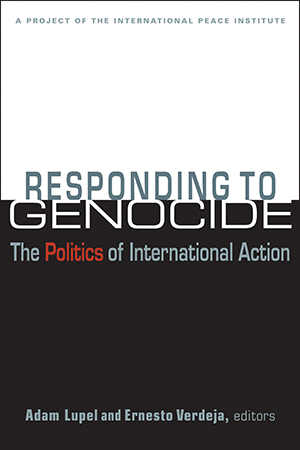What are the causes of genocide and mass atrocities? How can we prevent these atrocities or, when that is no longer possible, intervene to stop them? What are the impediments to timely and robust action? In what ways do political factors shape the nature, and results, of international responses? The authors of Responding to Genocide explore these questions, examining the many challenges involved in forging effective international policies to combat genocidal violence.
Adam Lupel is vice president of the International Peace Institute. He is author of Globalization and Popular Sovereignty: Democracy’s Transnational Dilemma and coeditor of Peace Operations and Organized Crime: Enemies or Allies? Ernesto Verdeja is associate professor of political science and peace studies at the University of Notre Dame. His recent publications include Unchopping a Tree: Reconciliation in the Aftermath of Political Violence.
No rights in India."This is social science at its best.... It should be read by all policy-makers and scholars interested in preventing genocide."—Karen E. Smith, Perspectives on Politics
"A valuable new book on genocide prevention, bringing together several pioneering scholars from the growing field of genocide studies who speak with knowledge and political sophistication about the genuine difficulties of preventing and stopping genocide and other mass atrocity crimes."—Hugo Slim, International Affairs
"Combining cutting-edge insights with finely-grained analysis, this book makes an important contribution to our understanding of what needs to be done to rid the world of genocidal violence and the policy practicalities of doing it. [Each] chapter brings a new sharpness to the field that will advance not only the scholarly debate about how best to respond to genocide, but also practical policy.... A must-read for old hands and newcomers, academics and practitioners, alike."—Alex Bellamy, Griffith University
"A first-rate collection on an extraordinarily important topic.... Although dealing with a topic that sometimes generates more passion than reason, the authors offer a sobering but hopeful assessment of the international community's current architecture on genocide response and prevention."—Michael N. Barnett, George Washington University






